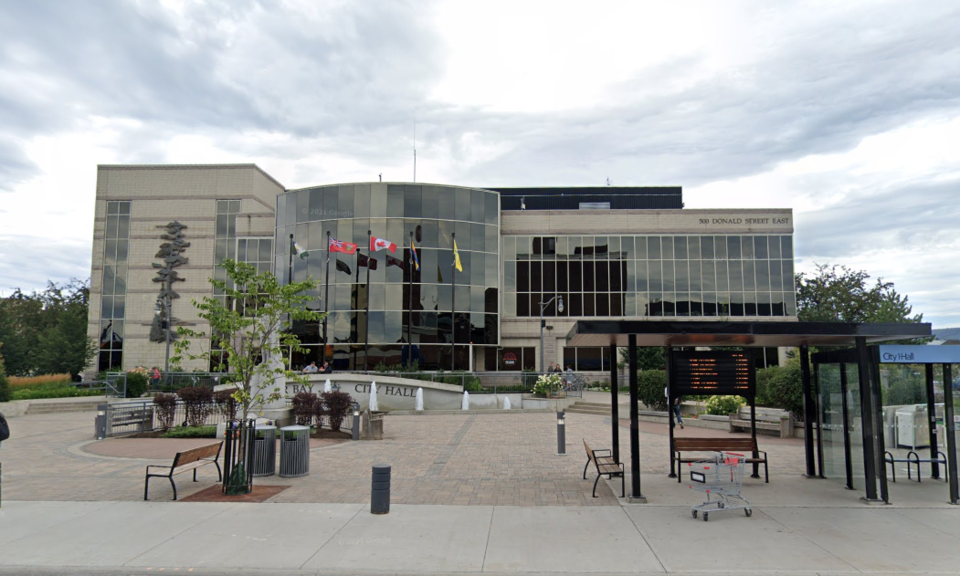THUNDER BAY – The City of Thunder Bay has signed on to a climate pledge reaffirming its commitment to a carbon neutral future by 2050, and adopting specific targets to green its transit fleet and municipal buildings.
Thunder Bay officially joined over 20 other Canadian municipalities in the Cities Race to Zero campaign Monday night, with unanimous endorsement from city council.
Designed to inspire climate commitments from municipal governments around the world, the United Nations-backed campaign comes as world leaders meet in Glasgow for the COP26 UN climate change conference.Coun. Andrew Foulds, who brought forward the motion on behalf of the city's EarthCare Advisory Committee, said the commitment was one way for Thunder Bay to do its part in those wider efforts.
“This is asking that we join that global campaign,” he said. “We want to be one of those cities on [this] list to help encourage world leaders to be ambitious.”
Foulds argued the city plays an important role in the climate battle. The Federation of Canadian Municipalities has estimated local governments have direct or indirect control over 44 per cent of Canada’s greenhouse gas emissions.
“This is part of our evolution as a municipality, and I'd argue part of our duty [to achieve] net zero and deal with this global crisis of climate change,” Foulds said.
The city is already on board with parts of the pledge, like reaching net zero GHG emissions by 2050 compared to 2016 levels, with a 55 per cent cut by 2030.
Those targets are included in the Net Zero Strategy unanimously endorsed by city council in June.
“We’ve done a lot of the work already, so it’s in fact quite easy to join this race, because of the work we’ve done in the sustainability plan, in the climate adaptation plan, in the net-zero plan," said Foulds.
Joining Cities Race to Zero commits Thunder Bay to some new actions, notably procuring and testing zero emissions buses for its transit fleet by 2025, and developing a “roadmap” by 2030 to make municipal buildings carbon neutral.
Some councillors worried about the expense of those commitments, with Coun. Brian Hamilton saying he'd have liked to see costing details.
“I’m interested in… where the rubber meets the road, how this is affecting our budget,” he said. “It’s very easy to raise our hand – of course this is all great, great stuff. But I’m interested in what this means.”
Sustainability coordinator Amy Coomes said the Race to Zero targets “directly align” with the existing Net Zero Strategy goals, though they might set a more specific timeline to get there.
Net Zero Strategy milestones include converting city buses to electric power by 2035, and making all municipal buildings carbon neutral by 2035.
Hamilton seemed less than reassured, saying the climate commitment would mean the city spends less in other areas.
“There will be implications downstream,” he said. “I just want to have those conversations with the community. I’m also worried about credibility – it’s easy to say yes to a bunch of stuff."
Foulds later responded the city had often generated, not lost, revenue by taking climate action, pointing to energy savings and millions received in government grants for climate adaptation and flood prevention work.
Mayor Bill Mauro shared some of Hamilton’s concerns, but emphasized the need to continue what he called a tradition of climate leadership.
“Climate change [has] been right in front of us for a very long time,” he said. “There have already been examples of hundred-year storms happening a year apart [in Ontario].”
“The work is important. I think every day, every week there are fewer and fewer doubters – people who will resist the need to do something about this. So just to support Coun. Hamilton’s point, but also to say to this council and past councils, congratulations for all the work you’ve done getting this city ready for the urgent crisis we’re already in.”
The Net Zero Strategy is an aspirational document based on an inventory of community emissions. Achieving its goal of carbon neutrality by 2050 will require action from all levels of government, citizens, and the private sector.
Canada has yet to meet its Paris Agreement targets on GHG emissions, which increased through 2019.
Prime Minister Justin Trudeau has said new commitments by his government will put Canada on track for a 45 per cent emissions drop by 2030, compared to 2005 levels.
That would be in line with reductions scientists estimate are needed to hold global warming to 1.5 C, though some argue Canada should exceed that goal given its wealth and high per capita emissions.
Council voted unanimously to join the Cities Race to Zero campaign Monday, with councillors Fraser and Giertuga absent.
Coun. Kristen Oliver declared a conflict on the motion, citing her employment with Enbridge Gas. In an email, the Westfort councillor said that put her in an "indirect fiduciary conflict" as her employer "may have a role or may experience an impact on the Race to Zero strategies."
